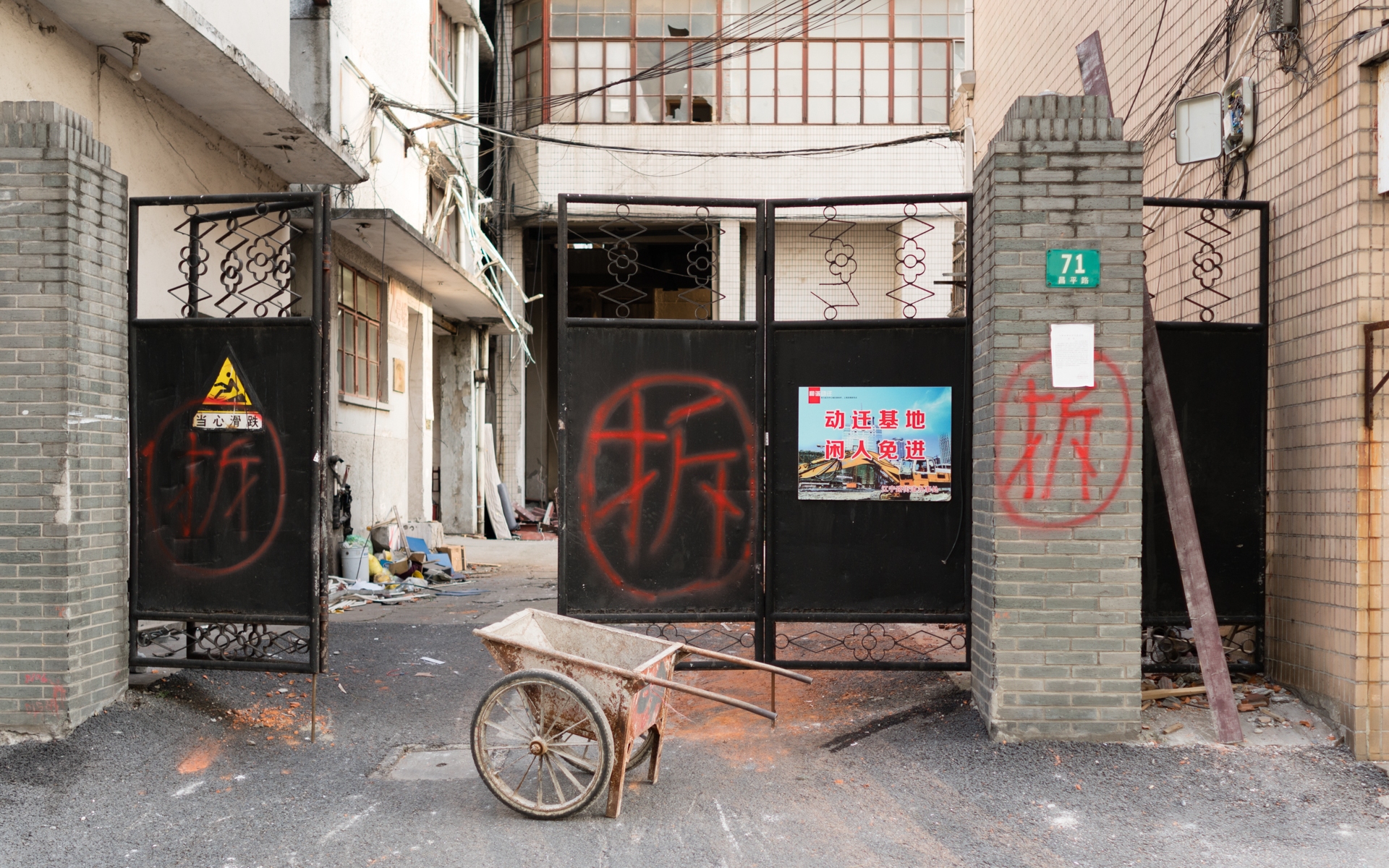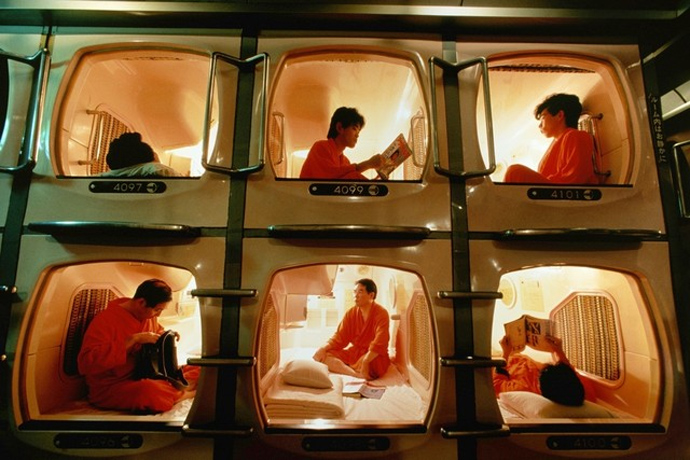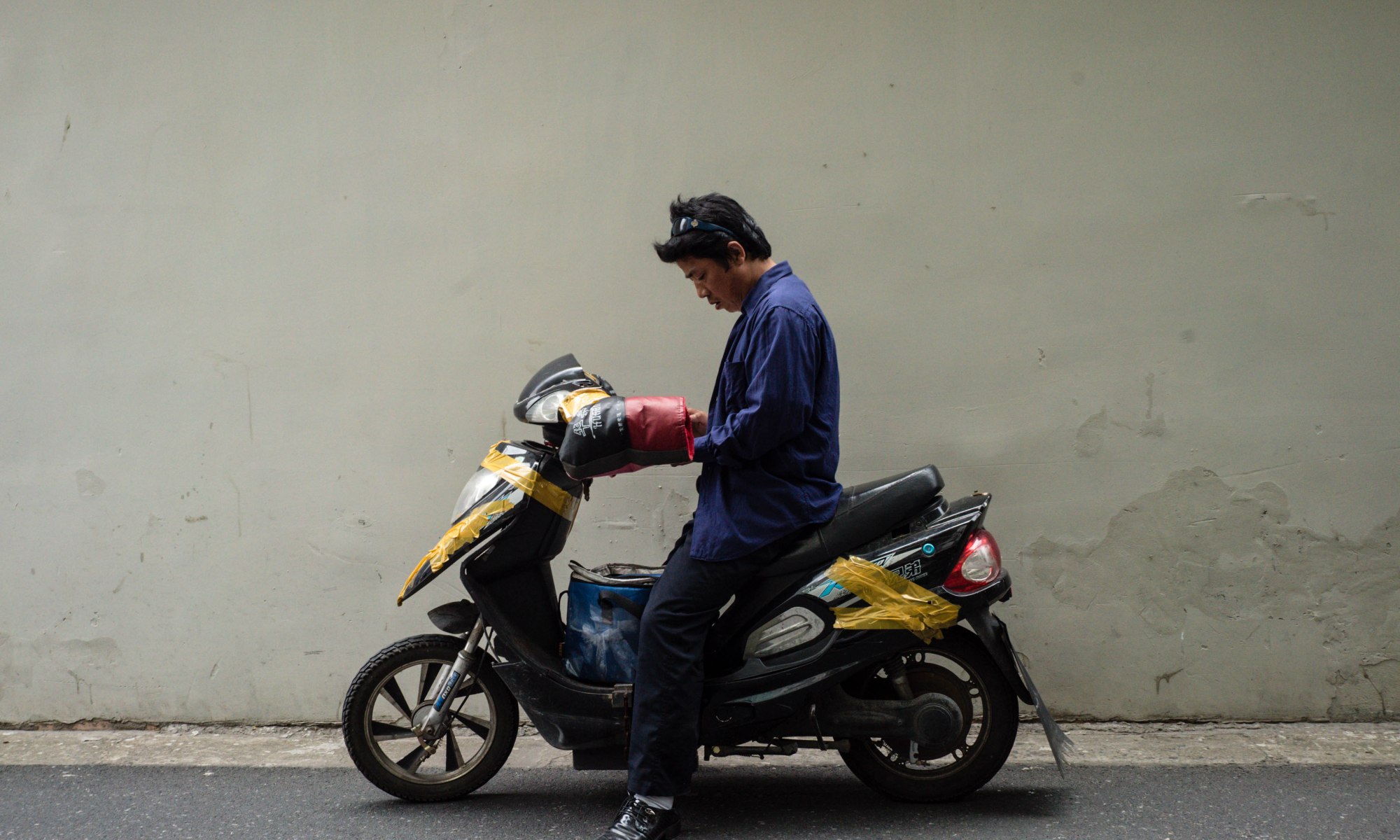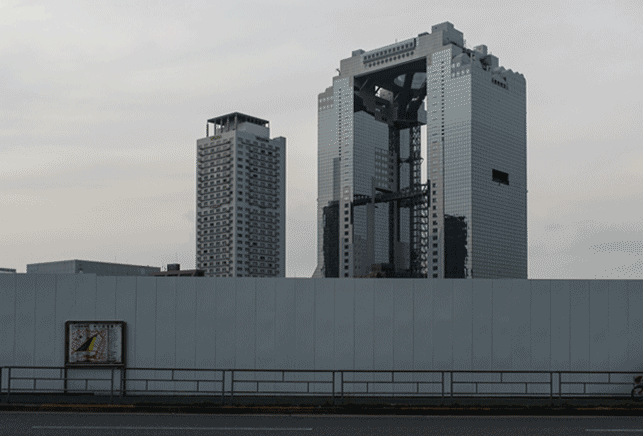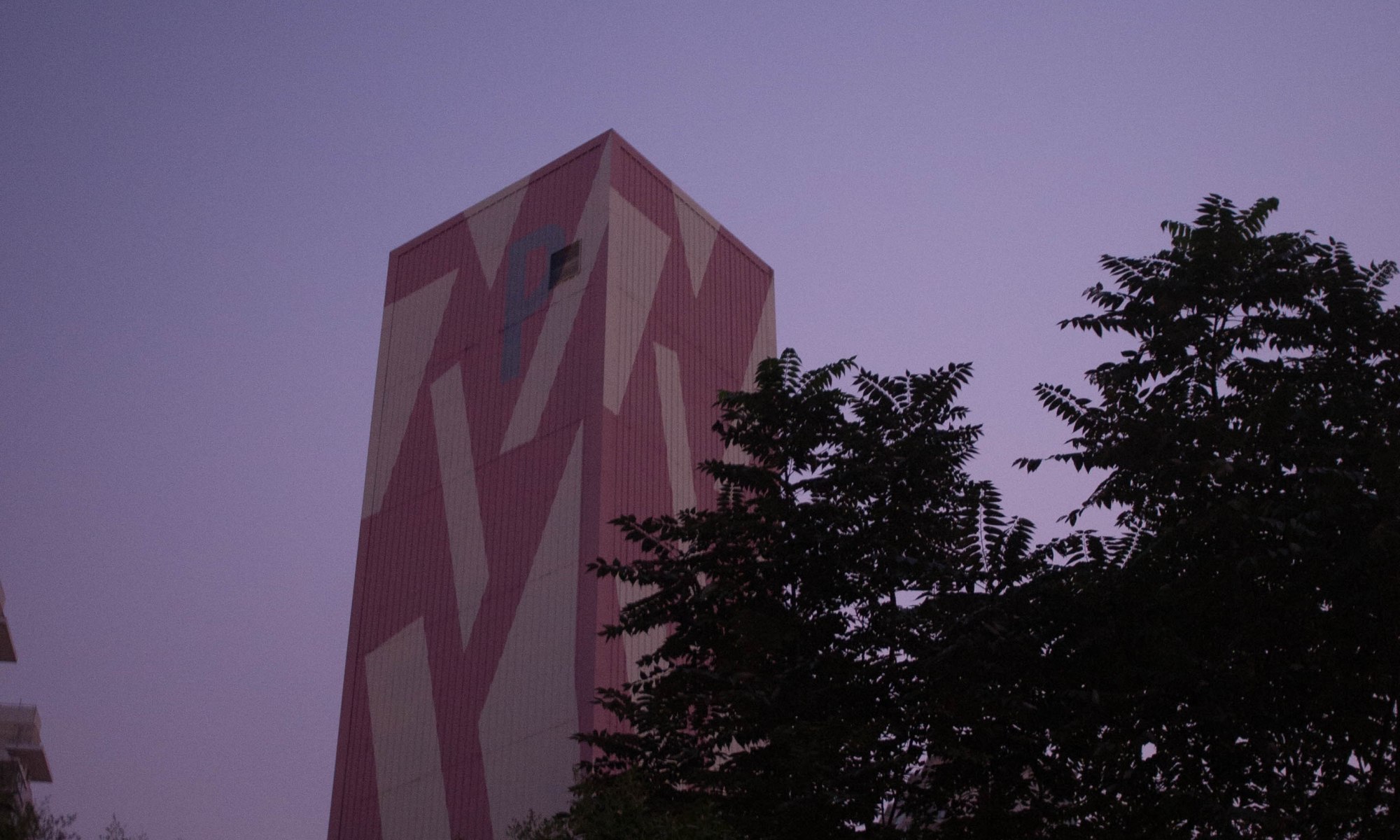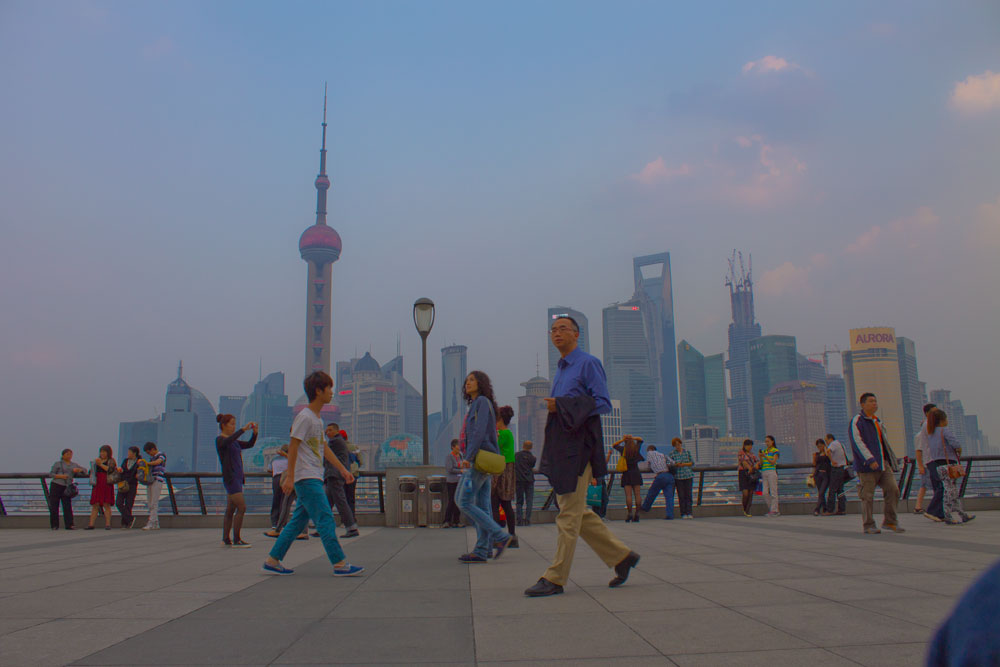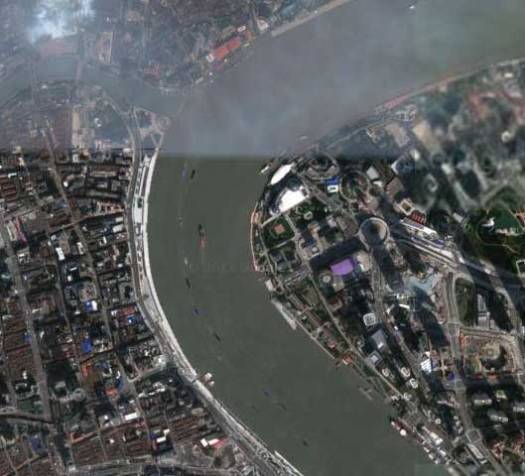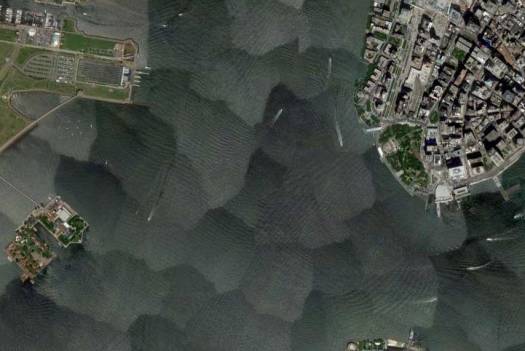Lamb’s blood, Bagua mirrors, doors and signs of passover. On Changping road, in north-east Jing’an, Shanghai, a whole street is sanctioned for demotion with ‘拆’ consecrating anti-passover above every entrance. Continue reading “Changping road teardown”
Shinjuku Capsule Hotel Video
I’ve always been fascinated by capsule hotels, so I made this video (in Tokyo) when I stayed in one. Fast forward to 1:03 if you want to see me sleeping. Continue reading “Shinjuku Capsule Hotel Video”
Subsidized Cyclesharing and Smartphones: On Buzzbike
Buzzbike is a high-concept implementation of ad-subsidised cyclesharing, but with a contemporary technologically-facilitated twist. Continue reading “Subsidized Cyclesharing and Smartphones: On Buzzbike”
Solaris / e-Bikes / Shanghai / disjointed futurism
There’s a remarkable scene in Andrei Tarkovsky’s 1972 Solaris (above). Continue reading “Solaris / e-Bikes / Shanghai / disjointed futurism”
Virtual / Physical Palimpsests
As virtual markets eat physical markets, new hybrid spaces, virtual-physical palimpsests Continue reading “Virtual / Physical Palimpsests”
Hiroshi Hara | Osaka + Kyoto
Hiroshi Hara | Umeda Sky Building | Osaka Continue reading “Hiroshi Hara | Osaka + Kyoto”
Teenage Engineering OP-1
Hong Kong / Shanghai
Video From the Bullet Train, West of Shanghai
A brief picture of the endless development of Shanghai. 100kms outside of the city limits, between Wuxi and Shanghai North Station. South facing on the Bullet Train.
Continue reading “Video From the Bullet Train, West of Shanghai”
On Spaces of Collective Imagination, Modernity and Movement
On Collective Spaces of Imagination
Inhabiting a space of acute collective imagination gives pause for thought. Whether in the lobby of a gilded hotel, or under the vault of a cathedral, spaces of collective imagination make present the unresolved relationship between material culture and individual experience. The logic of the social announces itself acutely and undeniably as different people, from different places, are united by an ineluctable force. Crises, holidays and certain arrangements of material elements cut through monadic cynicism.
Shanghai is a sprawling city. My experience of 10 million + cities is that they shirk resolution in to unities. While small / medium cities afford a concrete sense of the soul and center, the most I can assemble from Shanghai is a collection of inadequate glimpses. The parts here are unquestionably less than the whole, and will likely never amount to it, no matter the scope of one’s collection.
Consequently, establishing a center is a problematic exercise. Nonetheless, the Bund (a sort of old-world grand boulevard) and Pudong (a sort of hyper-modern Shanghai Canary-Wharf) function as the de facto centers. Both centers face one another, from opposite sides of the Huangpu river. The Bund is the east-most part of old-Shanghai, and Pudong is the West-most part of new-Shanghai.
Along the river, Bund-side, is an elevated observation deck that teems with people.
On the Bund-observation deck, I was overtaken with the realization that between Old-Shanghai (Pushi) and New-Shanghai (Pudong) a space of collective imagination emerges that concentrates the global spirit of emergent Chinese power and modernity. Tellingly, in the above picture, the arrangement of seating is such that people sit with their backs to Old-Shanghai, and look out on the new:
Bifurcated by the river, I imagined ourselves Pushi-side as part of a great ship, rolling in to Pudong like immigrants to New York in the 1900s. A strange thought, to invest static spaces with the dynamism of trans-Atlantic sea travel.
A strange thought, but somehow justified. Certain spaces of collective imagination participate in the static, or the dwindling. The last breath of summer, a statue garden. What distinguishes the collective-imagination space of the modern, of the new, is its ability to suffuse its beholders with dynamism and motion. Looking out over Pudong, every moment the skyline grows incrementally closer.
